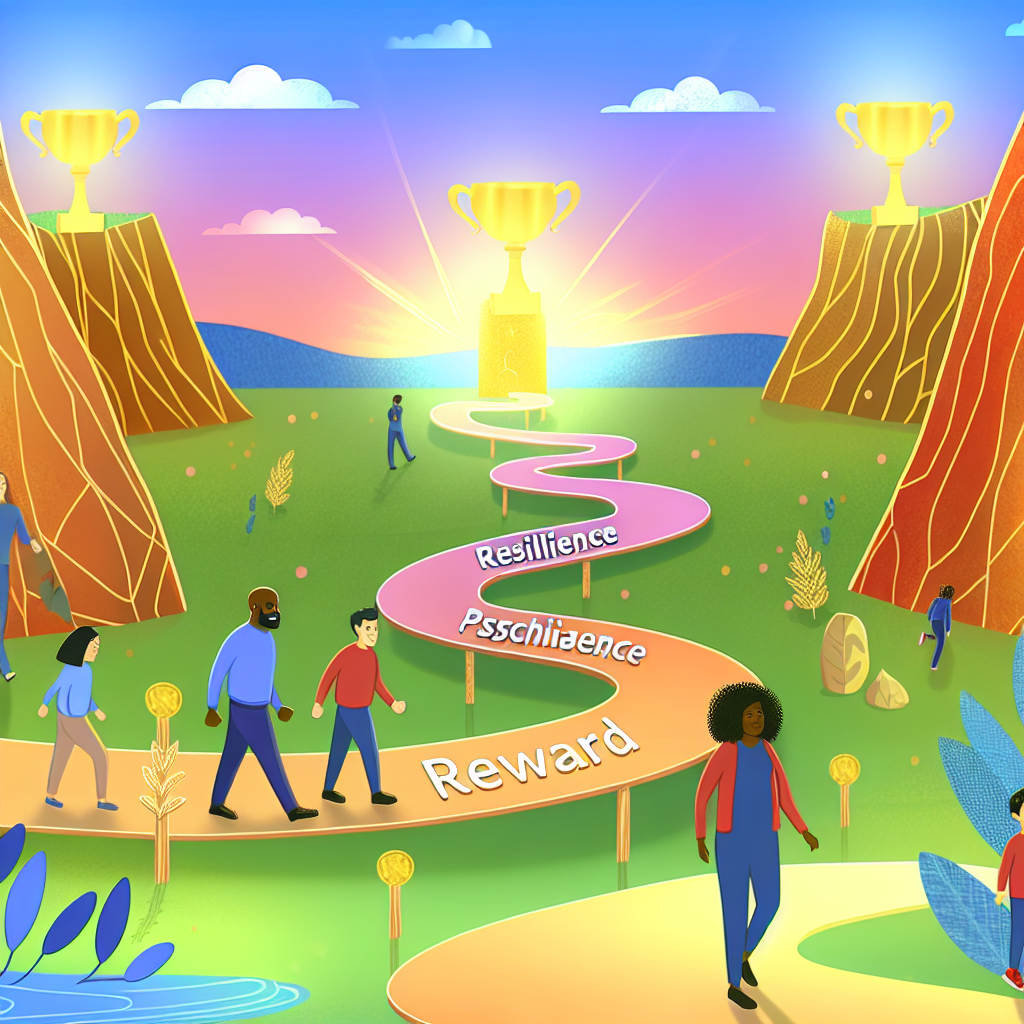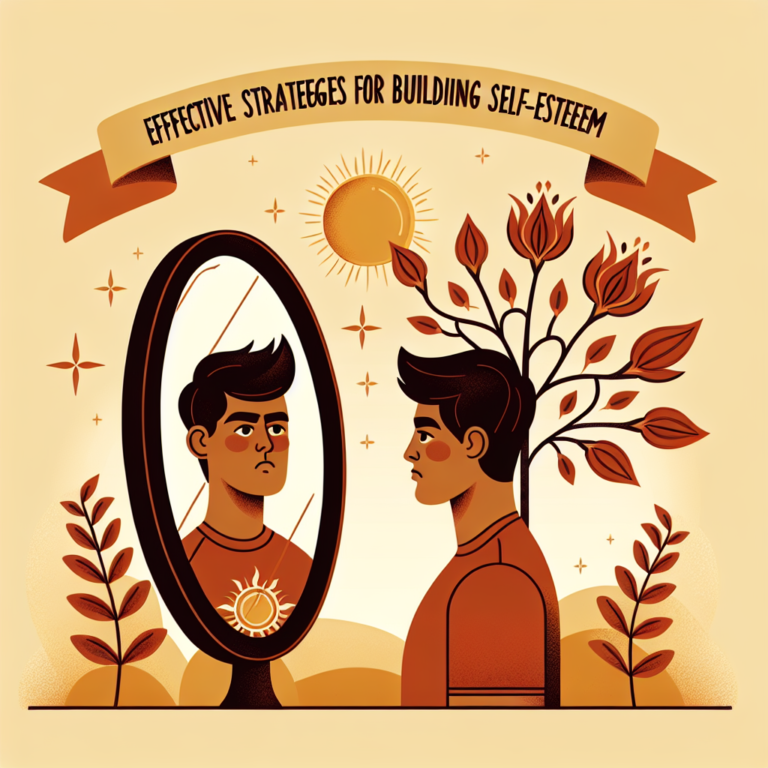
Resilience and Reward: The Proven Psychological Path to Staying Motivated
Introduction
In today’s fast-paced world, the difference between success and failure often boils down to one characteristic: resilience. The ability to bounce back from setbacks not only shapes our personal lives but also drives our professional journeys. When paired with the concept of reward—both intrinsic and extrinsic—resilience becomes a powerful engine for sustained motivation. In this article, we will explore the nuances of resilience and reward, delving into the psychological pathways to keeping our motivation alive and thriving.
Understanding Resilience
What is Resilience?
Resilience is often defined as the capacity to recover quickly from difficulties. It’s about more than just survival; it’s an active process of adapting well in the face of adversity. Resilience is crucial not just in overcoming obstacles but also in maintaining motivation over longer periods.
The Psychology of Resilience
Psychologists suggest that resilience comprises a set of skills and attitudes that can be learned and developed. Key components include:
- Emotional Awareness: Understanding your feelings and being able to manage them.
- Optimism: Maintaining a positive outlook despite challenges.
- Social Support: Building strong relationships that provide encouragement during tough times.
- Goal Setting: Establishing realistic objectives and the steps to achieve them.
Case Study: The Resilience of Athletes
Consider the case of Olympic athletes. Resilience plays a pivotal role in their training and performance. For example, when a runner suffers an injury, their ability to bounce back determines their return to the sport. Mental training techniques such as visualization and positive self-talk help these athletes reframe challenges as opportunities, illustrating resilience in action.
The Role of Reward in Motivation
Types of Rewards
Rewards can be classified into two main types:
- Intrinsic Rewards: These are internal rewards derived from personal satisfaction, growth, or achievement.
- Extrinsic Rewards: These come from external sources, such as money, recognition, or trophies.
Understanding how these rewards interplay with resilience can provide insights into staying motivated.
The Reward System in the Brain
The brain’s reward system is central to our ability to stay motivated. Neurotransmitters like dopamine play a critical role in signaling pleasure and reinforcing behaviors. Therefore, establishing a connection between resilience and reward can enhance motivation.
Case Study: Employee Motivation Programs
Many companies have implemented motivation programs that reward resilience. For instance, a tech startup introduced a scheme where employees were recognized based on their ability to overcome challenges. Not only did this increase overall morale, but productivity shots also improved significantly, demonstrating how fostering resilience can lead to enhanced performance through both intrinsic and extrinsic rewards.
Building Resilience: Psychological Strategies
Cognitive Behavioral Techniques
Cognitive Behavioral Therapy (CBT) emphasizes the importance of reframing negative thoughts and developing healthier thought patterns. Techniques such as challenging irrational beliefs can increase resilience.
Mindfulness Practices
Mindfulness can significantly enhance resilience by helping individuals stay present and focused. Practices like meditation create mental space for reflection and help maintain emotional balance.
Goal-Oriented Strategies
Setting SMART (Specific, Measurable, Achievable, Relevant, Time-bound) goals can transform aspirations into actionable items. Achieving small, manageable goals provides both intrinsic and extrinsic rewards, contributing to ongoing motivation.
Table 1: Psychological Strategies for Building Resilience
| Strategy | Description | Expected Outcome |
|---|---|---|
| Cognitive Behavioral Techniques | Reframe negative thoughts | Increased emotional awareness |
| Mindfulness Practices | Focus on the present | Enhanced emotional regulation |
| Goal-Oriented Strategies | Set and achieve SMART goals | Boosted intrinsic motivation |
Fostering a Resilient Mindset
The Power of Positive Thinking
A positive mindset reinforces the belief in one’s ability to overcome challenges. According to research, maintaining a positive attitude can directly correlate with improved health and mental strength.
Building Strong Relationships
Having a supportive network minimizes feelings of isolation and provides a safety net during tough times. This social support system is crucial for resilience.
Learning from Failure
Adopting a mindset that views failure as an opportunity to learn rather than an endpoint is critical. Embracing this perspective enhances resilience and subsequent motivation.
Case Study: The Growth of EdTech Startups
The EdTech sector has grown rapidly, with many startups pivoting their strategies after facing initial failures. For instance, one startup launched a learning platform but struggled to gain traction. Instead of shutting down, the team analyzed feedback, learned from their experience, and relaunched with new features, eventually achieving success. This case exemplifies how resilience and the willingness to learn from mistakes can lead to ultimate rewards.
Incentivizing Resilience: Extrinsic Rewards
Creating Reward Structures
Organizations and individuals can establish reward structures to promote resilience. For instance, companies can give bonuses or awards for employees who demonstrate exceptional resilience.
The Impact of Recognition
Public acknowledgment can be a powerful motivator. Celebrating small wins not only boosts morale but also reinforces individual resilience.
Understanding the Interplay of Resilience and Reward
The Motivation Equation
Motivation can be viewed as a function of resilience and reward:
[ \text{Motivation} = \text{Resilience} + \text{Reward} ]
This equation highlights that both resilience and reward contribute equally to motivation. Enhancing one can positively impact the other, creating a cycle of ongoing motivation.
Case Study: Educational Resilience Programs
Schools that have implemented resilience programs often find that students who learn to adapt and overcome challenges perform better academically. For instance, a high school initiated a program focusing on resilience and goal setting, which resulted in improved graduation rates. Here, success serves as an intrinsic reward, as students achieve personal milestones.
Conclusion
Resilience and reward are not just concepts; they form the backbone of sustained motivation in the face of challenges. By understanding and cultivating resilience, individuals can create pathways to rewards that not only enhance their personal and professional lives but also inspire those around them. Remember, every setback can be a setup for a comeback, and every challenge comes with its own set of rewards waiting to be unearthed.
FAQs About Resilience and Reward
Q1: What is the first step to building resilience?
A: Start by developing emotional awareness. Understand your feelings and identify how they impact your actions.
Q2: How can I stay motivated during tough times?
A: Set small, achievable goals and celebrate your successes. This can provide both intrinsic rewards and a sense of accomplishment.
Q3: Are there tools to measure resilience?
A: Yes, various assessments and questionnaires can help you evaluate your resilience levels, allowing you to identify areas for improvement.
Q4: Can anyone become more resilient?
A: Absolutely! Resilience is a skill that can be developed through practice and persistence.
Q5: How does social support affect my resilience?
A: Strong social networks provide emotional support and resources, which are critical for developing and maintaining resilience.
By exploring these themes of resilience and reward, you can embark on your own psychological path to staying motivated, ultimately leading to a more fulfilling and successful life. Remember, the journey may be challenging, but the rewards are well worth the effort.

















